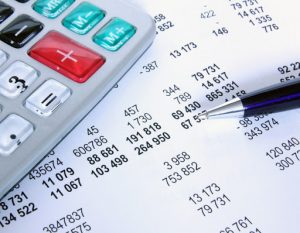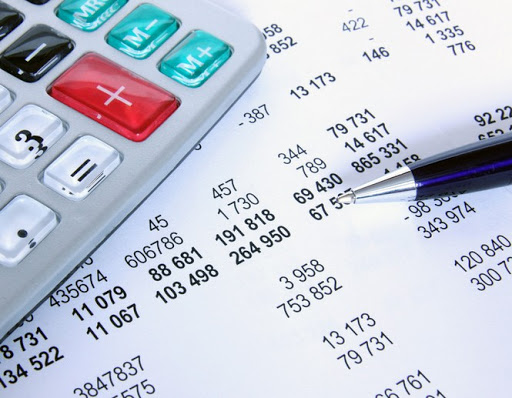Differences between Cost Accounting and Management Accounting are bieng discussed here.Management accounting includes many aspects of business such as decision making, strategizing, planning, performance management, risk management and so on. Cost accounting, on the other hand, only revolves around cost computing, cost control, and overall cost reduction of business.

In simple terms, cost accounting is one of the sub-sets of management accounting. As a result, the scope and reach of management accounting is much broader and more profound than cost accounting. So, we can say that management accounting can give a helicopter view of the business by looking at every aspect qualitatively and quantitatively. Cost accounting only gives a pixelated view of the cost of each product, service or process.
In this article, we talk in detail about Cost Accounting vs. Management Accounting –
Key Differences Between Cost Accounting and Management Accounting
There are many differences between cost accounting versus management accounting. Let’s look at these distinctions
Now that we take a look at key differences in Cost Accounting and Management, let us understand each of them in more detail.
Cost accounting comes down to two words – “cost” and “accounting”.
First, let’s understand what a “cost” is. Then we’ll look at “accounting”.
Cost is an expense incurred to a particular unit. In other words, cost is what the business offers to produce one unit.
Accounting is the art and science of recording, classifying, summarizing and analyzing inputs to understand the information related to financial, management or cost.
If you are new to accounting, you can learn basic accounting here Cost accounting is the art and science of recording, classifying, summarizing, and analyzing costs to help management make sound business decisions.
If you want to learn cost accounting professionally then you may want to take a look at 14+ hours of Cost Accounting Course. There are basically three functions of accounting accounting –
Direct costs are directly involved in the production of goods. This means that direct costs can be directly identified as being used in the production of goods. For example, we can talk about direct material and direct labor that are used in the production of goods. We can identify these costs as direct costs.
Indirect costs, on the other hand, are costs that are not easily identified. The reasons these costs cannot be identified separately because these costs aid the operation of multiple activities. For example, the rental company paying for production management would be called indirect costs because we cannot identify how much portion of the rent is used for the production of goods, how much is used to prepare the raw material, how much it uses to install the simulation systems. , who can train the workers.
Understanding these two types of costs is important because we would use these costs when computing unit sales costs for a particular product.
Fixed costs are costs that do not change with the increase or decrease of product units. That means these costs remain similar across the broad spectrum. Moreover, the unit fixed cost changes as production increases or decreases. For example, rent is a fixed cost. Even if production increases or decreases, the company must pay the same rent month in and month out.
Variable cost is exactly the opposite of fixed cost. Variable costs change depending on the growth or decline of production units. But even if the total variable cost changes, unit cost per unit remains the same regardless of changes in production units. For example, the cost of raw material is a variable cost. The total cost of raw material changes as production increases or decreases. But per unit cost of raw material remains the same, even if production increases or decreases.
In semi-variable costs, both components are present. Semi-variable costs are the combination of fixed costs and variable costs. Let’s say you pay $ 1000 a month as a fixed wage to all your workers and the workers who produce more than 50 units of toys each month receive an additional $ 5 for each additional unit produced. This kind of pay will be called semi-variable pay.
Cost accounting is much more than a cost statement. But nonetheless, a cost statement will give us an idea of how to calculate cost of sales per unit for a particular product –
MNC Factory has the following information and from the information provided below you must calculate per unit cost of sales.
Find out the cost of sales per unit.
In this example, each input is given. We just need to put the figures in the right place.
Declared cost by ABC Factory
Accounting management is the process of collecting, analyzing and understanding the financial statements, statistical and quality audit information to understand how the company is doing and what to do in the near future.
Management accounting helps to make short-term decisions and also helps to strategize for future big events. The idea of management accounting is to prepare periodic reports that can educate and inform the managers of the company to make effective decisions.
Even if management accounting is much different than financial accounting and cost accounting (cost accounting is one of the sub-sets of management accounting), it collects information from both of this accounting in producing periodic reports for management.
The proper motto of these reports is to help management get all the information at finger tips and use the information to make effective business decisions.
As there is no legal requirement, these reports are articulated as needed by the administration.
Here are the features of these reports –
Because we know that periodic management reports serve a great purpose in making effective management decisions, we need to know the importance of management accounting in business. Here are the most factors –
There are many tools used in management accounting. It follows most that are commonly used –
There are many differences between cost accounting versus management accounting. Let’s look –
Below table summarizes key differences between cost accounting versus management accounting.
Both cost accounting versus management accounting assistance management makes effective decisions. But their scope and tools are completely different. Because management accounting relies heavily on cost accounting to prepare reports, cost accounting happens to be a subset of management accounting. But if we look at the usage, evaluation process, data points used, and utility, cost accounting has a much narrower scope than management accounting.
At the same time, to understand management accounting, you need to understand cost accounting well. This is why it is important to understand the contrast between cost accounting and management accounting.
Cost accounting is that branch of accounting that seeks to generate information to govern operations aimed at maximizing profits and efficiency of the company, which is why it is also called domain accounting. Conversely, management accounting is the type of accounting that helps management in planning and decision making and therefore known as decision accounting.
The two accounting systems play an important role, as the users are the internal management of the organization. While cost accounting has a quantitative approach, ie it records data that is related to money, management accounting gives emphasis to quantitative and qualitative data. Now let’s understand the difference between cost accounting and management accounting, with the help of a given article.
Cost Accounting is a method to collect, record, classify and analyze cost related information. The information provided by it is helpful in the decision-making process of board members. There are three main elements of cost, which are material (direct and indirect), labor (direct and indirect) and overhead (Production, Office and Management, Sales and Distribution, etc.).
The main purpose of cost accounting is to track the production costs and fixed costs of the company. This information is useful for reducing and controlling various costs. It is very similar to financial accounting, but it is not reported at the end of the financial year.
Management Accounting refers to the preparation of financial and non-financial information for the use of management of the company. It is also referred to as managerial accounting. The information provided by it is helpful in making policies and strategies, budgeting, forecasting plans, making comparisons, and evaluating management’s performance.
The reports produced by management accounting are used by the internal management (managers and employees) of the organization, so they are not reported at the end of the financial year.
Both cost accounting and management accounting are part of accounting. They help to ensure the smooth and efficient operation of the business. Based on the information provided by the two entities various analyzes are performed. Calculation accounting aims to reduce extra expenses, eliminate unnecessary costs and control various costs. On the other hand management acunting aims at policy planning, strategic formulation setting goals, etc.
